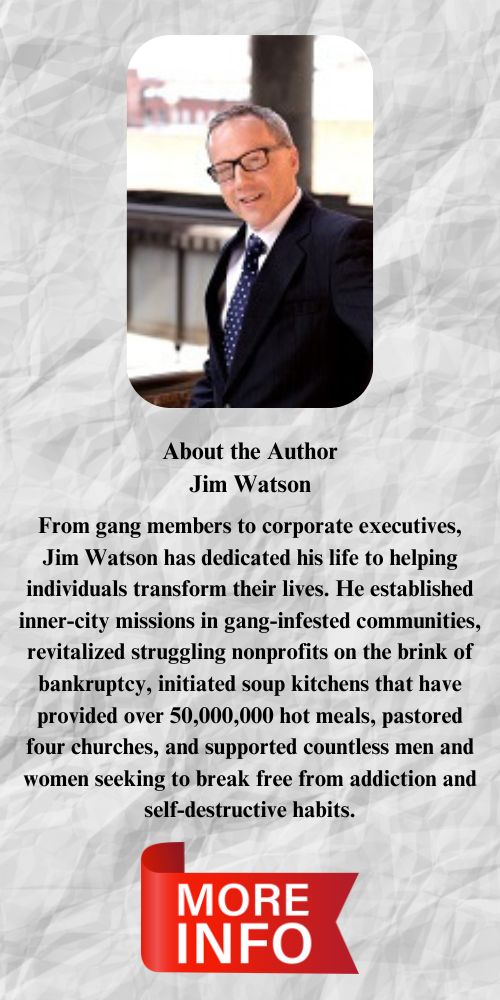
Revolutionize Your Thinking

Revolutionize Your Thinking
“I beseech you therefore, brethren, by the mercies of God, that ye present your bodies a living sacrifice, holy, acceptable unto God, which is your reasonable service. And be not conformed to this world: but be ye transformed by the renewing of your mind, that ye may prove what is that good, and acceptable, and perfect, will of God.”
(Romans 12:1-2, KJV)
Several years ago, one of the men in my residential program asked to speak with me. He seemed nervous. Despite being anxious and agitated, he was determined to tell me what he was feeling. After a few moments, he blurted, “Don’t mess with my mind! I can stand the chores and the other stuff we do. Just don’t mess with my mind.”
Feeling concerned for him, I responded, “Your addiction is not the cause of your problems. It is just a symptom of what is wrong with your thought processes. Unless we can help you change the way you think, we cannot help you recover from drugs.” Within a few days, he disappeared. As of this writing, addiction is still in control of his life.
SURRENDER IS THE CATALYST THAT PRODUCES A CHANGE IN OUR THINKING
In a previous writing, I wrote that change results from a surrendered life. Submission to Christ is the channel that allows change to take place in your thinking, thereby releasing you from structures and worldviews that are not in harmony with God’s character. Without surrender, your thinking will remain mired in worn-out concepts that lead to self-destruction, broken relationships, and ingrained habits and addictions that exert absolute power over your destiny.
In the Scripture passage at the beginning of the chapter, you read that a transformed mind is vital and necessary for determining and understanding the will of God. The problem with an untransformed mind is its inability to think rationally about the steps needed to change one’s life. In I Corinthians, we read, “But the natural man receiveth not the things of the Spirit of God: for they are foolishness unto him: neither can he know them, because they are spiritually discerned.“ (I Corinthians 2:14, KJV)
Surrender is the ultimate form of trust a person can give God. It expresses your willingness to relinquish any person, place, or thing that stands between you and God. This act of sacrifice is your acknowledgment that without God, life is senseless, without meaning. It expresses dependency and trust, a belief that God has your back and that the best outcome for your life occurs when you surrender to him. It signifies your recognition that you do not always know what is best and that sometimes your wisdom and understanding are inadequate for the daily obstacles you face.
This is why surrender is spiritual and not just physical or intellectual. It is an act of spiritual worship because it clears the self-will that blocks the Holy Spirit’s flow in your life. As the Spirit of God flows into your life, your thinking begins to change. Wrong thinking is the root of an immoral character, the herald of self-destruction, the cause of your endless cycle of relapse and disgrace. It is a perspective that traps you in ungodly behavior, places you in a destiny of failure, and imprisons you in behavior patterns beyond your escape.
Faulty thinking is the way of a fool. Foolish reasoning does not limit itself to the ignorant and uninformed; it is often the throne of the genius and powerful. Just watch the nightly news to know the truth of this statement.
The problem with faulty thinking is that it obstructs the ability to think clearly about a matter or even recognize flawed reasoning. Your perspectives seem reasonable and right to you, indisputable, beyond question. In the drug culture, it is called “stinking thinking.”
I remember sitting with one of the men in my addiction program in a large waiting room filled with convicted felons on probation, each waiting to meet with their probation officer. I did not stand out as an authority figure because I wore jeans and a sweater, like most other men and women in the room.
Listening to their conversations, I could hardly believe what I was hearing. Work was for suckers. Upstanding citizens were fools. If you are smart, crime does pay. Punishment for a crime was wrong. It seemed to me that the whole world was upside down. Right was wrong; wrong was right.
The reasoning of the men and women in that room was out of harmony with society’s mainstream. If I had suggested that they were wrong in their observations and their conclusions concerning reality were wrong, they might conclude that I was the fool, a sucker, or maybe someone they could manipulate for their benefit.
In many ways, we are just like those men and women who sat in that room. We are blind but think we see; we are confused but believe we understand; we are not in control but accept our unsupported belief that we are in charge. Because of this tangled web of self-deceit and our inability to think on a spiritual level, all efforts to change ultimately falter. We dream of living on a higher plane but are stuck, unable to rise beyond our current status.
Perhaps you have heard the hymn called “Amazing Grace.” John Newton, a former slave trader, wrote the song after his conversion to Christianity. Here is the first verse:
Amazing Grace, how sweet the sound, That saved a wretch like me,
I once was lost but now am found, Was blind, but now, I see.
CHANGING YOUR THINKING IS A PRODUCT OF TIME SPENT WITH GOD
Changing how you think results from a relationship with God and time; it does not happen overnight. Surrender is the soil that enables the work of the Holy Spirit in your life. Over time, as you repeatedly yield to God’s authority, his presence in your life transforms your thinking. It creates a new dynamic that changes your perception of the world and gives you victory over entrenched habits and sins.
The problem with much of your thinking is one of sources and influences. The friends you spend time with, the shows you watch on television, the books you read, the hurts and pains, the setbacks and failures, the successes and triumphs all exert a powerful influence on your thought processes. They largely determine how you view and react to the events in your life.
As you immerse yourself in Scripture, the Holy Spirit transforms your thinking and worldview, helping you to experience victory over the most dangerous foe you will ever face—yourself. This process of immersion is essential for repairing your thinking and behavior. Habits and flaws that seem impregnable fortresses begin to crumble and fall, producing Christ-like behavior and a gradual manifestation of the fruit of the Spirit in your life.
BIBLICAL THINKING WILL TRANSFORM YOUR PERSPECTIVES ON LIFE
The Apostle Paul wrote the following words to the church at Philippi:
“But I rejoiced in the Lord greatly, that now at the last your care of me hath flourished again; wherein ye were also careful, but ye lacked opportunity. Not that I speak in respect of want: for I have learned, in whatsoever state I am, therewith to be content. I know both how to be abased, and I know how to abound: every where and in all things I am instructed both to be full and to be hungry, both to abound and to suffer need. I can do all things through Christ which strengtheneth me.”
(Philippians 4:10-13, KJV)
How you react to your daily experiences–the things that can make or break you–is primarily a matter of perspective or worldview. For instance, sometimes, the sheer volume of stressful situations you regularly encounter can overwhelm you. You feel hemmed in, unable to function. Your thought processes and perspectives significantly sway your reaction to stress. For some, pressure is a destructive force to avoid at all costs. Others find stress energizing, a natural byproduct of living a meaningful life.
Regardless of your view, stress is a fact of modern life. We stress over our schedules, traffic, work, families, finances, other folk’s opinions, weight, and clothing. The list continues almost beyond counting. To combat stress, we exercise, take prescription medication, abuse drugs, get drunk, take vacations, go to therapy, yell, scream, run, accuse, self-destruct, and withdraw from friends and family. If we cannot manage stress, we may even wreck our lives.
If anyone knew about pressure, it would be the Apostle Paul. For Paul, stress was a daily confidante, an intimate acquaintance. Stress was not something he avoided, as he would a deadly epidemic. Instead, he viewed stress as a necessary component of a life lived to its fullest potential.
To reduce stress in your life, you may adjust your daily activities to help you avoid as much pressure as possible by dodging stressful people, looking for less stressful jobs, avoiding risks, and attempting to reduce your responsibilities. You may even seek to find balance in your life to bring order out of the chaos of daily living. Suppose you were successful in eliminating all stress from your life.
What would your life be like if everything went smoothly without the interruption of unplanned events or irritants? Would you finally find happiness? Unfortunately, you will soon discover that a life without stress is dull and boring, devoid of challenge and risk. Without pressure, your character would be stifled, lacking internal strength and courage. You would end up living the life of a coward, afraid of confrontation, unwilling to venture down any path that might upset the serenity of your stress-free existence. In other words, your life would not count for much because it would be without impact, barely making a ripple in the sea of humanity.
There is a common saying among Christians used to comfort someone going through a crisis or a time of unbearable hardship. They say, “God wouldn’t allow anything to come into your life that is more than you can bear.” In other words, many believe they can manage everything that comes into their lives; otherwise, God would not allow it to occur. But if we could handle all of life’s challenging elements, how could we ever reach our full potential as human beings? We could never grow beyond our current level. We would be stuck, thwarted from ever experiencing God’s will for our lives.
The Apostle Paul faced stress around every corner due to constant conflicts, setbacks, disappointments, and failures. His life of tension and pressure was beyond his ability to endure. It was a life lived beyond the limits of human endurance.
In II Corinthians, Paul said,
“For we would not, brethren, have you ignorant of our trouble which came to us in Asia, that we were pressed out of measure, above strength, insomuch that we despaired even of life: But we had the sentence of death in ourselves, that we should not trust in ourselves, but in God which raiseth the dead.
II Corinthians 1:8-9 (KJV)
Paul could not endure the conditions he was facing. By this, he meant that he lacked sufficient strength to face and overcome the challenges that confronted his life. Without God’s help, his trials and circumstances would destroy him.
When Paul said he had learned the secret of contentment in all situations, he didn’t mean his life was free of problems and challenges. Nor did it mean he was satisfied with the status quo, accepting whatever life threw at him without resistance. Paul was a warrior, a world-changer who upset the established order.
For Paul, contentment was not a byproduct of external circumstances, abundant provision, or the absence of conflict; instead, his satisfaction resulted from his faith, based on his experience that God always had Paul’s best interest at heart. Whatever happened to Paul, good or bad, could never override God’s power or prevent God’s purpose from finding its fulfillment in his life. His contentment was faith in God’s goodness and unlimited love and mercy.
When Paul said, “I can do all things through him who strengthens me,” he never meant that God had turned him into Superman, able to leap tall buildings in a single bound. No, he meant that because of his faith in God, he could meet any challenge, setback, and even success with the assurance that God was on his side, no matter the outcome.
Paul lived an immensely impactful life that changed the world because of his faith in God. When he said, “I have learned the secret,” he meant that his thinking had changed concerning the meaning of his life experiences. Paul realized that all things in his life–whether allowed by God or the direct result of his actions–were tools that God was using to transform his life significantly.
Faulty thinking causes us to react wrongly or draw incorrect conclusions when faced with life’s constant hammering and flow. Even when confronted by positive experiences, faulty thinking can teach us the wrong lessons, resulting in future misfortune.
Paul said that he had learned the secret of contentment. Since he had to learn to be content, he, too, was a victim of his thinking at some point in life, just like you and me. It was a process.
Perhaps you are overwhelmed with stress, fear, and discouragement. Worry has become your closest friend, your constant companion. Your emotions destroy your quality of life and rob you of your joy. Glumly, you wonder if it will ever end.
I cannot promise your situation will ever get better. I do not know if your deliverance is just around the corner. I hope things will improve for you, but things may worsen. From reading the Scriptures, I know Paul’s situation never improved. It continued until the Roman government executed him.
Although Paul’s condition did not change, Paul changed. He learned how to face the growing onslaught of destruction and pain that ripped apart the tranquility of his life. As he matured and became more like Christ, he began to appreciate the broader perspective of God’s work in him. His life overflowed with meaning and purpose because God was hard at work forming the image of Christ in him.
Just as Paul did, with God’s help, you can learn the secret of being content, of trusting God despite your circumstances. God’s strength will help you confront the darkness and emerge victoriously. As you struggle, ask him to help you continue trusting him. Do not listen to the voices that haunt your life with lies that proclaim God has abandoned you. He has never ceased working in your life.
Transformed thinking will significantly change who you are as a person. God uses His Word and your relationship with him to help your transformation occur. This change will reveal itself in your character and relationships. The fruit of the Spirit will begin to distinguish itself in your life; you will become more like Christ and less like your old self.
Do not be afraid to think Biblically. As you read and meditate on the Scriptures, ask God to align your thoughts with your reading. Over time, your thinking will change, creating a new world for your life and significantly enriching your relationships and emotional health. Start today.




